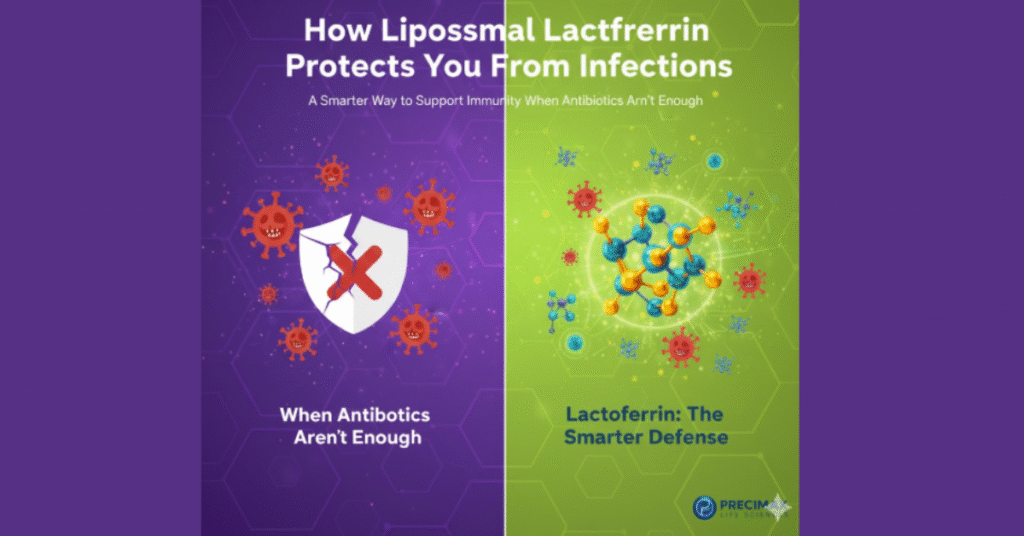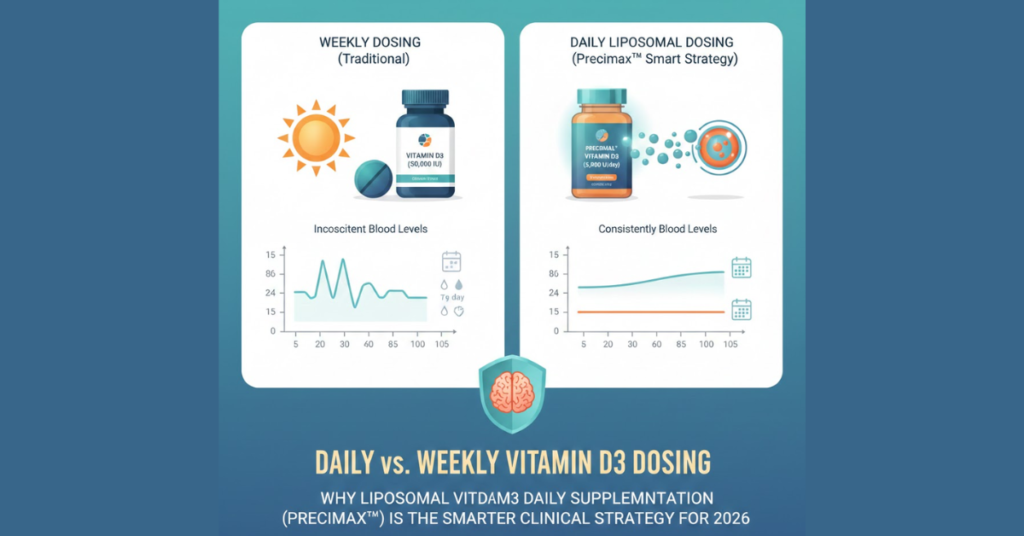
he debate between turmeric and curcumin often confuses many, leading to the belief that they are interchangeable. However, curcumin is not the same as turmeric. While turmeric has long held a prominent place in traditional medicine for its numerous health benefits, it is curcumin, a key active compound within turmeric, that is increasingly recognized as the more potent and effective component. This blog explores why curcumin supplementation is a superior choice over turmeric, particularly in modern, evidence-based medical applications.
The Difference between Turmeric supplement and Curcumin supplement: A Fallacy or Fact?
Turmeric is a multifaceted spice containing over 100 different compounds, yet curcumin is the most researched and credited with providing the majority of turmeric’s medicinal properties. When people speak of the health benefits of turmeric, they are usually referring to curcumin. However, turmeric in its natural form is not standardized, meaning the concentration of curcumin can vary significantly from one batch to another. This lack of consistency makes it difficult to use turmeric as a reliable treatment in modern medicine, where precise dosages and predictable outcomes are essential.
The Extraction and Potency of Curcumin supplement
A key difference between turmeric and curcumin is the concentration of the active compound. On average, turmeric contains only 3-5% curcumin by weight. To obtain a therapeutic dose of curcumin, one would need to consume a large amount of turmeric. To illustrate, approximately 1 kilogram of turmeric yields only 20-30 grams of curcumin. This extraction process highlights why curcumin supplements are more potent and often more expensive compared to raw turmeric powder. By concentrating curcumin, supplements offer far more effective therapeutic benefits in smaller doses.
High Doses of Turmeric: A Double-Edged Sword
While turmeric has been used traditionally in large quantities, achieving a therapeutic effect from turmeric alone often requires high doses. These large doses can lead to unwanted side effects such as gastrointestinal issues, including constipation and gastritis, and even bleeding risks due to its blood-thinning properties. On the other hand, curcumin supplements, thanks to their higher potency, can deliver the desired health effects with much smaller doses, reducing the likelihood of side effects. This makes curcumin a safer and more effective option for long-term use.
The Role of Bioavailability in Curcumin supplement Effectiveness
One of the major challenges with both turmeric and curcumin is their low bioavailability, meaning they are not easily absorbed into the bloodstream when taken orally. This issue has been addressed through various advanced delivery technologies, such as liposomal, micellar, and nanoparticle formulations. These technologies significantly enhance the absorption and stability of curcumin, allowing it to cross the blood-brain barrier and achieve higher concentrations in specific areas like the synovial fluid in joints or the peritoneal fluid in the abdomen. This makes curcumin more effective for conditions such as arthritis, cancer, and neurological disorders.
For example, the highly bioavailable and water-dispersible *Cucimax* capsule is a prime example of curcumin clinically validated across multiple conditions. In contrast, traditional turmeric, even when taken with bioavailability enhancers like piperine or fats, cannot match the absorption rates achieved by advanced curcumin formulations. The lack of significant advancements in turmeric’s bioavailability further underscores the superiority of curcumin supplements.
From Curcumin Capsules to Curcumin IV Injections
As scientific interest in curcumin has grown, so has the research and development of more effective delivery methods. In the last five years alone, studies on curcumin have outpaced those on turmeric, reflecting the growing confidence of medical researchers in curcumin’s efficaces. Newer delivery systems, such as curcumin IV injections, have been developed to achieve higher clinical efficacy, representing a significant leap forward in curcumin’s therapeutic applications.
This increased focus on curcumin is not surprising, given its broad therapeutic potential, which spans chronic inflammation, cancer, neurodegenerative diseases, and mental health disorders. The depth and breadth of research on curcumin far exceed that on turmeric, making curcumin a more reliable and scientifically validated choice for supplementation.
Targeted Action and Superior Bioavailability
The advancements in curcumin delivery systems have made it possible for curcumin to offer more targeted action, making it a more powerful therapeutic agent than turmeric. Modern curcumin formulations can be engineered to be organ-specific, targeting areas such as the brain, joints, or digestive system. For example, micellar technology based curcumin (CUCIMAX capsules) has the ability to cross the blood-brain barrier has opened new avenues for its use in treating neurodegenerative diseases like Alzheimer’s. Similarly, its presence in synovial fluid makes it highly effective in managing arthritis symptoms.
In contrast, turmeric’s bioavailability remains relatively low, limiting its effectiveness in treating specific conditions. This technological advancement has made curcumin a more powerful and versatile option for managing various health conditions with natural supplements.
Curcumin Supplements: Getting Better and Better
The superiority of curcumin over turmeric is not merely theoretical; it is backed by a growing body of clinical evidence. Numerous studies have demonstrated curcumin’s effectiveness in treating a variety of health conditions, often outperforming turmeric in head-to-head comparisons.
For instance, a study published in the *Journal of Alternative and Complementary Medicine* found that curcumin was more effective than turmeric in reducing inflammation in osteoarthritis patients. Another study in the *Journal of Clinical Psychopharmacology* showed that curcumin had significant antidepressant effects, whereas turmeric had a negligible impact. Additionally, curcumin has proven effective in managing symptoms of irritable bowel syndrome (IBS), inflammatory bowel disease (IBD), and even stress and anxiety.
Choosing the Right Curcumin Supplement

When selecting a curcumin supplement, it’s crucial to ensure that the product contains standardized curcumin and not just turmeric powder. Look for products that specify the percentage of curcumin and utilize advanced delivery systems, like micellar matrix (*Cucimax 500mg* capsules), which has demonstrated superior efficacy to standard curcumin. These factors will ensure that you’re receiving the full therapeutic benefits of curcumin without the need for high doses or the risk of side effects.
Dosage Guidelines for Curcumin Supplementation
The dosage of curcumin varies depending on the formulation and intended use. Most studies suggest that a daily dose of 500 mg is effective when curcumin is taken as a single agent. When combined with bioavailability enhancers like piperine, a lower dose of 150-200 mg may suffice. For higher bioavailability curcumin formulations, like *Cucimax*, only one capsule per day may be needed to achieve the desired effects. It is essential to follow the dosage recommendations provided by the manufacturer or consult with a healthcare provider for the best results.
The Takeaway: Become a Curcumin Supplement Expert
In conclusion, while turmeric continues to hold value in traditional medicine and culinary use, curcumin supplementation offers a more potent, effective, and scientifically validated approach to health management. With advancements in extraction, standardization, and delivery systems, curcumin has proven to be the superior choice over turmeric, particularly for managing chronic health conditions.
Before choosing a supplement, ensure it contains standardized curcumin and not just turmeric powder, and consider the bioavailability of the product to maximize its therapeutic potential. Curcumin represents a significant leap forward in the use of natural compounds for therapeutic purposes, providing a reliable, evidence-based solution for a wide range of health concerns.
The conversation surrounding turmeric and curcumin often blurs the lines between the two, but they are not the same. While turmeric has long been revered in traditional medicine for its health benefits, curcumin, one of the key active compounds in turmeric, is increasingly recognized as the more potent and effective component. This blog will explore why curcumin supplementation is a superior choice over turmeric, especially when looking for modern, evidence-based medical applications.
Curcumin is Not Turmeric, a fallacy or fact?
Turmeric is a complex spice, containing over 100 different compounds. However, curcumin is the most researched and is primarily responsible for the spice’s medicinal properties. When people refer to the health benefits of turmeric, they are often indirectly referring to curcumin. The challenge lies in the fact that turmeric is not standardized in its natural form, which means the concentration of curcumin can vary widely from one batch to another. This variability makes it difficult to use turmeric as a reliable treatment in modern medicine, where precise dosages and predictable outcomes are crucial.
The Extraction and Potency of Curcumin
One of the most striking differences between turmeric and curcumin is the concentration of the active compound. On average, turmeric contains only about 3-5% curcumin by weight. This means that to obtain a therapeutic dose of curcumin, one would need to consume a significant amount of turmeric. To put it into perspective, approximately 1 kilogram of turmeric yields only about 20-30 grams of curcumin. This extraction process highlights why curcumin supplements are more potent and also more expensive compared to raw turmeric powder. The concentrated nature of curcumin makes it more effective, allowing for smaller doses to achieve therapeutic results.
High Doses of Turmeric: A Double-Edged Sword
While turmeric has been traditionally used in large quantities in cooking and medicine, achieving a therapeutic effect often requires high doses, which can lead to unwanted side effects. Large doses of turmeric can cause gastrointestinal issues such as constipation, gastritis, and even bleeding risks due to its blood-thinning properties. In contrast, curcumin supplements, due to their higher potency, can deliver the desired effects with much smaller doses, reducing the risk of side effects. This makes curcumin not only a safer option for long-term use, but also an effective option when combined with standard treatments.
Is The Role of Bioavailability in Curcumin’s Effectiveness
One of the significant challenges with turmeric or curcumin is its low bioavailability, meaning that it is not easily absorbed into the bloodstream when taken orally. However, this issue has been addressed through various advanced delivery technologies. Liposomal, micellar, and nanoparticle formulations have been developed to enhance the absorption and stability of curcumin. These technologies allow curcumin to cross the blood-brain barrier and achieve higher concentrations in specific areas like the synovial fluid in joints or the peritoneal fluid, making it more effective in targeting conditions like arthritis, cancer, and neurological disorders. Highly bioavailable and water –dispersible Cucimax capsule is a good example, which clinically validated across multiple conditions.
In contrast, traditional turmeric, even when taken with bioavailability enhancers like piperine or fats, cannot match the absorption rates achieved by these advanced curcumin formulations. The lack of significant advancements in turmeric’s bioavailability further underscores the superiority of curcumin supplements.
From Curcumin capsules and now the research has reached Curcumin IV injection
The scientific community has increasingly focused on curcumin due to its therapeutic potential. Over the last five years, there has been a noticeable surge in the number of studies conducted on curcumin, outpacing those on turmeric. According to recent data, the percentage of research dedicated to curcumin or curcumin-based formulations has significantly increased, reflecting the growing confidence among medical researchers in curcumin’s efficacy. Newer delivery forms like curcumin injectable are used to achieve higher clinical efficacy.
This trend is not surprising, given that curcumin has shown promise in a wide range of conditions, from chronic inflammation and cancer to neurodegenerative diseases and mental health disorders. The depth and breadth of research on curcumin far exceed that on turmeric, making curcumin a more reliable and scientifically validated option for supplementation.
Targeted Action and Superior Bioavailability
The advancements in curcumin delivery systems have allowed for more targeted action, making it a more powerful therapeutic agent than turmeric. Modern curcumin formulations can be engineered to be organ-specific, targeting areas such as the brain, joints, or digestive system. For example, curcumin’s ability to cross the blood-brain barrier has opened new avenues for its use in treating neurodegenerative diseases like Alzheimer’s. Similarly, its presence in synovial fluid makes it highly effective in managing arthritis symptoms.
These targeted actions are made possible by the superior bioavailability of curcumin in its modern formulations. In contrast, turmeric’s bioavailability remains relatively low, limiting its effectiveness in treating specific conditions. This technological advancement has made curcumin a more powerful and versatile option for those looking to manage various health issues with natural supplements.
Curcumin supplements, getting better and better!
The superiority of curcumin over turmeric is not just theoretical; it is backed by a growing body of clinical evidence. Numerous studies have demonstrated curcumin’s effectiveness in treating a variety of health conditions, often outperforming turmeric in head-to-head comparisons.
For instance, a study published in the *Journal of Alternative and Complementary Medicine* found that curcumin was more effective than turmeric in reducing markers of inflammation in patients with osteoarthritis. Another study in the *Journal of Clinical Psychopharmacology* showed that curcumin had significant antidepressant effects, whereas turmeric had a negligible impact. Additionally, curcumin has been shown to be effective in managing symptoms of irritable bowel syndrome (IBS), inflammatory bowel disease (IBD), and even stress and anxiety.
In contrast, turmeric has not been subjected to the same level of rigorous clinical testing, and the studies that do exist often show less consistent results. This discrepancy in the quality and quantity of research further supports the case for curcumin supplementation over turmeric.
Choosing the Right Curcumin Supplement
When choosing a curcumin supplement, it’s essential to ensure that the product contains standardized curcumin and not just turmeric powder. The label should specify the percentage of curcumin, and ideally, the product should use one of the advanced delivery systems, like Micellar matrix (CUCIMAX 500mg capsules), which has demonstrated to be far superior to standard curcumin as well as other curcumin formulations. These factors will ensure that you are getting the full therapeutic benefits of curcumin without the need for high doses or the risk of side effects.
Dosage Guidelines for Curcumin Supplementation
The dosage of curcumin can vary depending on the formulation and the intended use. However, most studies suggest that a daily dose of 500 mg of curcumin is desirable when taken as a single agent. Interestingly, micellar matrix curcumin like Cucimax capsules also offers sustained action, making it just 1 capsule daily, vis-à-vis other formulations which may requires multiple doses to achieve required efficacy, When curcumin is combined with other agents, such as piperine or other bioavailability enhancers, a lower dose of 150-200 mg may be sufficient. It’s important to note that these guidelines can vary depending on the specific formulation, so it’s always best to follow the dosage recommendations provided by the manufacturer or consult with a healthcare provider.
Take home message to make you a curcumin supplement expert!
In conclusion, while turmeric has its place in traditional medicine and culinary uses, curcumin supplementation offers a more effective and scientifically validated approach to health management. The advancements in curcumin extraction, standardization, and delivery systems have made it a superior choice over traditional turmeric, especially for those looking to manage chronic conditions or improve their overall health. Before choosing a supplement, it’s essential to ensure that it contains standardized curcumin and not just turmeric powder, and to consider the bioavailability of the product to maximize its therapeutic potential.
Curcumin represents a significant leap forward in the use of natural compounds for therapeutic purposes. Its concentrated potency, superior bioavailability, and targeted action make it a more effective option than turmeric, providing a reliable, evidence-based solution for a wide range of health concerns.




